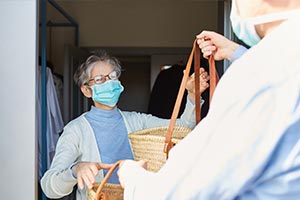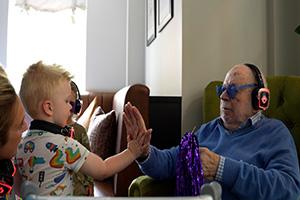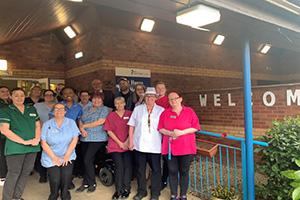How Communities Came Together for the Elderly During Covid-19
With the first UK case of Coronavirus in January now a distant memory, the country is slowly adapting to the lockdown and tentatively looking ahead to a post-Covid future. The UK government made available almost £3 billion to fund the care and protection of its most vulnerable citizens – but it didn’t stop there. Businesses big and small also stepped up to the challenge and, most inspiringly, communities of all kinds rallied together to support those most vulnerable to the virus: the elderly. Here’s a look at some of the heartwarming ways that communities came together by giving a helping hand where it really mattered.
Information and support online
According to one of the UK’s top providers of elder care at home, Helping Hands, “The coronavirus pandemic has made life feel very unsettled and frightening over the last few weeks,” especially for those with chronic illness or degenerative conditions like dementia. While official bodies have been working hard to protect elderly people’s health, many communities have stepped in to provide emotional and social support, quality advice and helpful information during this difficult time. Online support guides, information sheets and contact details for medical help quickly sprang up to help individuals support the elderly around them.

Several charities have also started to help elderly folks get online and stay connected with loved ones via video chat. Volunteers at abilitynet have been offering free advice to help elders install software, use chat platforms to talk to loved ones, do online banking or filling prescriptions, or simply use social media. As people have fun with Zoom quiz nights, online movie and book meetups, or simply impromptu group chats, elderly friends and family have been encouraged to join in.
Care packages for the elderly
While sparing a thought for their own elderly family members, many of us couldn’t help but be concerned for other older neighbours in our communities. Not only have many people decided to personally put together care packages of groceries, household goods and care items to help during isolation, but some have even started petitions to get this done on a larger scale. Several websites have now published advice and inspiration on what to include in such packages, to help people support their loved ones, those in local care homes or simply the retired couple down the street.
Shopping and errands
Currently, supermarkets all over the country have committed to flagging and prioritising home deliveries for those over 70 or those with a pre-existing condition that are still shielding at home. But long before that, local communities, councils and parishes were sending volunteers to buy and deliver groceries, medicine and supplies for those who could not leave their homes.
Small and medium local businesses (and even some farms in more rural areas) have really risen to the occasion by electing to deliver fresh food and essentials directly to people’s doors. Although these heroes have not received enormous press coverage, they have nevertheless made elderly people’s lives far more comfortable by offering emergency deliveries of fresh bread and milk, produce and even little luxuries when supermarket deliveries were unreliable.
Emotional support
Tireless volunteers at the Samaritans and Silverline have made special consideration for the fact that many callers will be older people concerned and stressed about the virus and its impact on their lives. Countless ordinary people have taken time out of their days to listen, offer emotional support or simply a compassionate presence on the other end of the line. For those isolating at home, staying connected can make all the difference to both physical and mental help. Churches and religious groups have also made concessions and found clever ways to offer spiritual guidance remotely. Older people who derive fulfilment and purpose from their weekly church service can now phone in or attend and online session without risking their health. The Church of England is even offering a 24 hour “telephone church service” at 0800 804 8044.
Though immensely difficult, the coronavirus pandemic has a silver lining, in that it has proven how much can be done when ordinary people work together to help others in their communities. Though unprecedented and unexpected, the challenges of the last few months have had an encouraging side effect, which is to remind people of what we’re capable of when we pull together and act with compassion. Elderly people, bearing the highest risk from the virus, have needed our support and care now more than ever – and many of us can confidently say that we have risen to the challenge.





